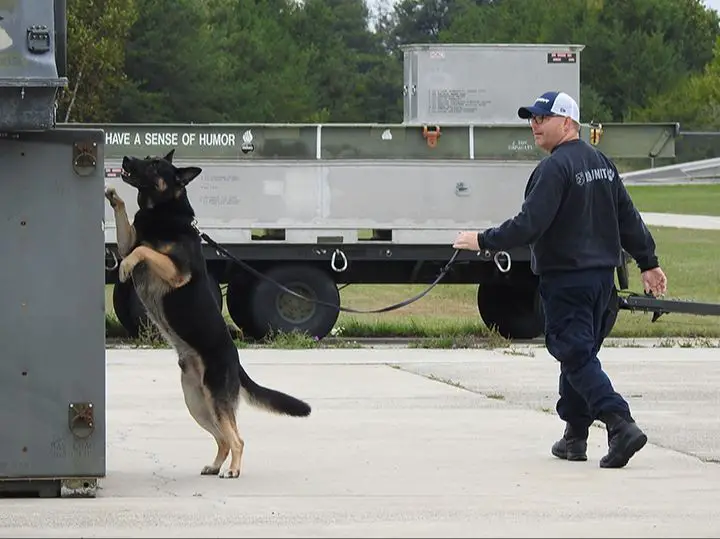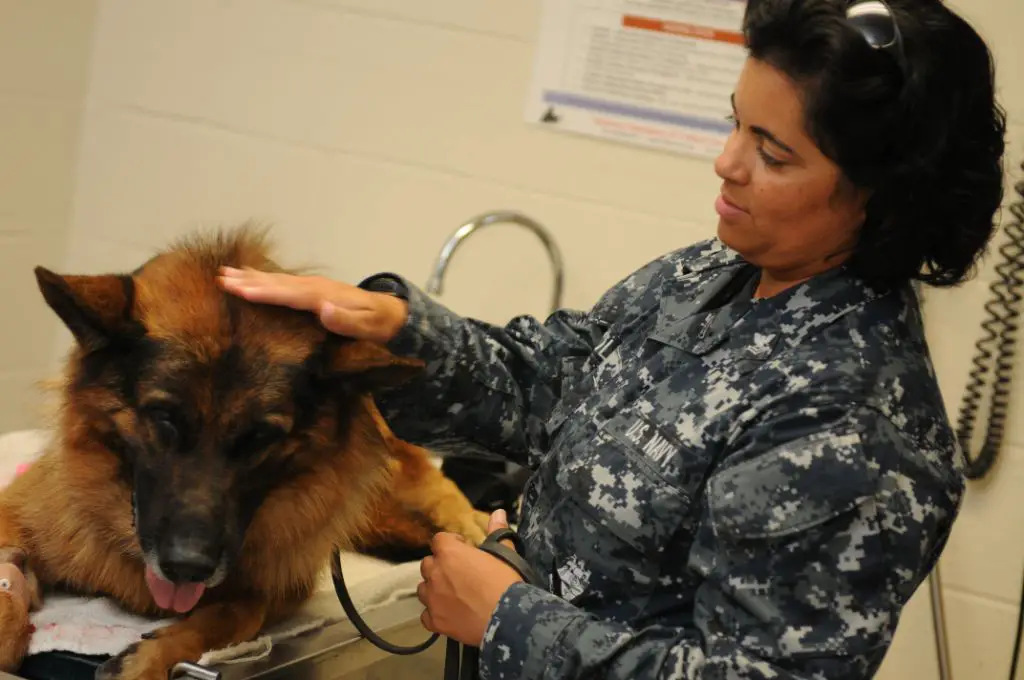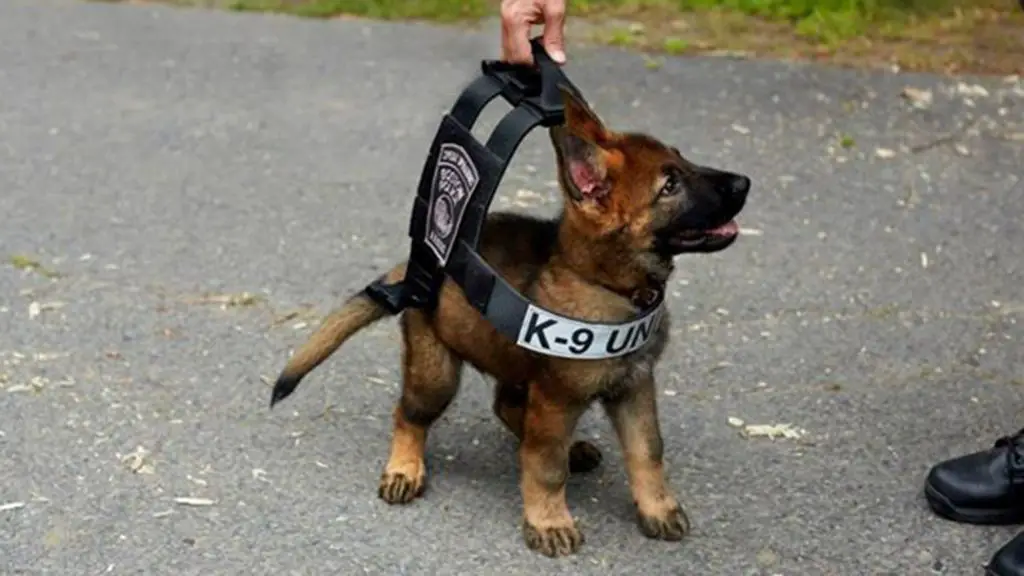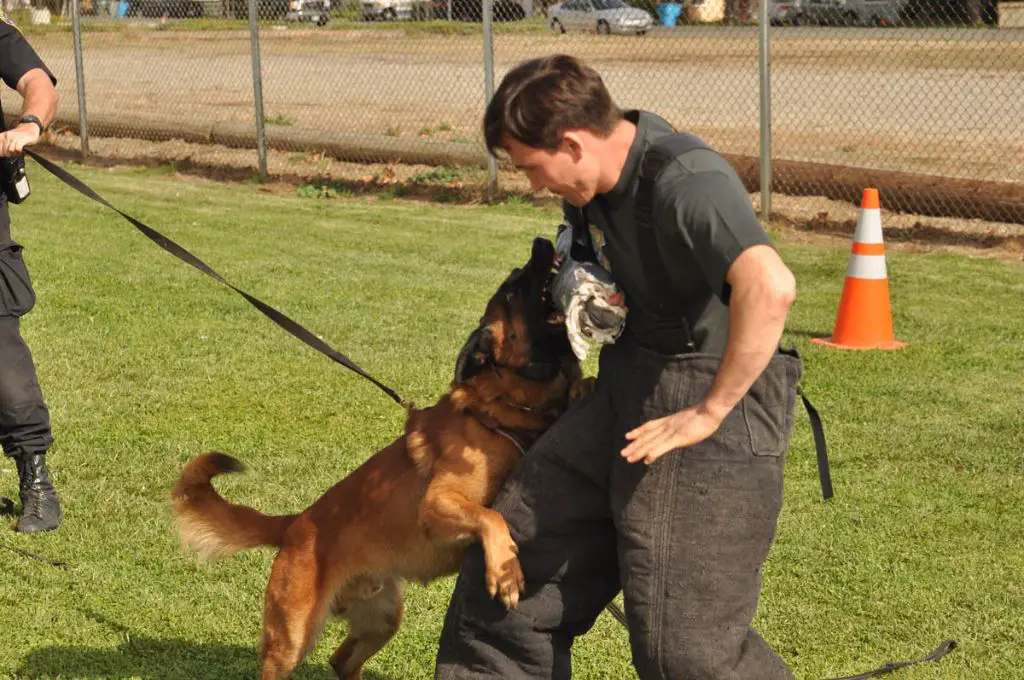Introduction
Police dogs play a crucial role in law enforcement. They are trained to perform a variety of duties including suspect apprehension, drug detection, and crowd control. Specialized training and socialization allow police dogs to enter situations that are dangerous for humans. However, it takes an immense amount of time, dedication, and resources to properly train a police K9.
Neutering refers to the surgical procedure to remove a male dog’s testicles so that he can no longer reproduce. Some believe neutering dogs will make them less aggressive, but there are significant concerns that neutering could negatively impact a police dog’s performance. So most police agencies choose not to neuter their male police dogs.
There are several key reasons police dogs are not neutered. Neutering may diminish natural traits like drive and aggression that are necessary for the police dog’s duties. There are also concerns over health risks, retention of learned skills, breeding future police dogs, and vendor sourcing restrictions. This article will explore the considerations in further detail.
Better Performance

Police dogs need high energy, focus, and drive to succeed in their demanding roles. Neutering can negatively impact these crucial traits for working dogs according to research. One study published in the National Library of Medicine found that intact male dogs significantly outperformed neutered ones in key areas like scent detection, chasing, searching, and guarding. This aligns with other research showing neutering causes poorer trainability in both male and female police dogs compared to intact counterparts. The male sex hormone testosterone is believed to be a key factor, as it affects energy, motivation, and focus. By keeping working dogs intact, trainers can harness these natural drives that make them excel as police K9s.
Aggression
There is some evidence that neutering may actually increase aggressive behavior in male dogs. A 2018 study found that neutered dogs were more likely to show aggression towards family members, unfamiliar dogs, and unfamiliar people compared to intact male dogs. The researchers theorized this may be due to the impact of testosterone on the development of male dogs. When dogs are neutered before puberty, they do not have the same life experiences that help them mature psychologically. Therefore, neutering may increase fear-based aggression in some male dogs.
However, the effects of neutering on aggression are not conclusive. Another source found conflicting evidence on whether early neutering correlates with increased aggression. More research is still needed to fully understand this complex relationship.
Health Risks
Some studies have found increased health risks associated with neutering dogs at a young age. Research published in Frontiers in Veterinary Science found that neutering before 1 year of age increases the risk of joint disorders like hip dysplasia in larger breed dogs [1]. The study suggested the increase in joint disorders may be connected to the delayed closure of growth plates when dogs are neutered early.

Early neutering also appears to increase the risk of certain cancers. According to the AKC Canine Health Foundation, sterilization before 1 year of age doubles the risk of developing osteosarcoma, a type of bone cancer, especially in larger breeds [2]. The risk of lymphoma was also found to triple with early sterilization.
Therefore, research indicates delaying neutering until a dog is fully grown may help mitigate some of these health risks.
Breeding
Many police departments breed their own dogs to ensure they get dogs with the ideal traits for police work. The top breeds used are German Shepherds, Belgian Malinois, Dutch Shepherds, and Crosses between these breeds. Well-bred police dogs can be quite valuable, with some selling for over $10,000 according to the National Police Dog Foundation (National Police Dog Foundation). As a result, some departments keep options open for breeding even if the dog is actively working. However, once a working dog is retired from active duty, breeding may be considered more strongly. This allows departments to continue producing puppies that are likely to have the strong drive, health clearances, and temperament needed to succeed as working police dogs.

Cost
Neutering police dogs can be quite expensive for police departments. Surgical neutering and the recovery time required can cost thousands of dollars per dog. According to the National Police Dog Foundation, the average cost for a European police dog, including transportation fees, is around $8,000 and increasing (source). With tight budgets, many police departments cannot afford these extra neutering expenses on top of the already high costs to acquire and train police dogs.
The costs associated with neutering and subsequent recovery times take police dogs out of commission for a while. This leads to departments being short-staffed on active police dog duty, which can burden operations. Due to these budget constraints, most police departments forego neutering expenses unless medically necessary or required by vendors.
Retention
Unneutered dogs tend to become more strongly bonded with their handlers and may have higher work drives, which can help with retaining working police dogs long-term. Castration can potentially reduce a male dog’s drive and motivation to work. According to research, neutering police dogs was associated with decreased performance in suspect searches and other key skills (https://pubmed.ncbi.nlm.nih.gov/33409309/). Keeping male police dogs intact allows them to maintain high testosterone levels and strong drives to work, track, and apprehend suspects. This strong bonding and work ethic makes intact dogs ideal candidates for police work where they must be highly motivated. Neutering may negatively impact their work quality by reducing these innate drives. Thus, many police forces choose to keep male dogs unneutered to support maximum drive, bonding, and long-term retention.
Vendor Restrictions

Some police dog vendors require that dogs remain intact as a condition of sale. For example, vendors may prohibit neutering within the first 2 years after a police department purchases a dog. They want to ensure the dogs retain their natural hormones and behaviors during prime working years. Vendors argue that neutering could diminish a police dog’s drive, aggression, and ability to track scents. However, research does not conclusively prove this.
While vendor restrictions aim to maximize performance, they increase risks of unwanted litters or medical issues. Police departments must balance vendor agreements with responsible pet ownership. Some advocates argue vendor restrictions promote poor breeding practices. Yet departments depend on vendor support for trained police dogs. Overall, vendor neuter policies reflect tensions between working dog performance versus public health priorities.
Sources:
https://www.quora.com/Are-police-dogs-spayed-and-neutered
Alternatives
While most police and military working dogs are not neutered, chemical castration may be a viable alternative. Chemical castration uses hormonal implants like Suprelorin to temporarily stop testosterone production and prevent breeding in male dogs (source1). This can provide some of the benefits of traditional neutering, like preventing accidental litters and reducing certain testosterone-related health issues, while still retaining desirable traits like aggression and high drive that are important for working dogs (source2). The effects of chemical castration are reversible once the implant wears off, so it allows organizations to preserve strong working traits in their dogs while managing behaviors as needed (source3). Chemical castration also costs less than traditional neutering surgery. For working dogs that need to remain intact, temporary chemical castration can be a suitable alternative to permanent sterilization.
Conclusion
In summary, the key points around why police dogs are often not neutered include:
Neutering may negatively impact working performance and ability, as intact males tend to be more aggressive, energetic, and focused. Neutering has been associated with decreased intensity and drive.
However, intact dogs may be more easily distracted, disobedient, and difficult to control. Proper training can help mitigate these risks.
Neutering provides health benefits like decreased prostate issues and cancer risks, but also poses surgical risks. The benefits tend to increase with age.
Allowing controlled breeding enables departments to produce high quality working dogs. However, breeding must be carefully managed.
Overall there are good arguments on both sides. Law enforcement agencies must balance working needs against animal welfare concerns. Neutering may be deferred to optimize working life, but should be considered after retirement. More research is needed on ideal breeding and neutering practices for working dogs.